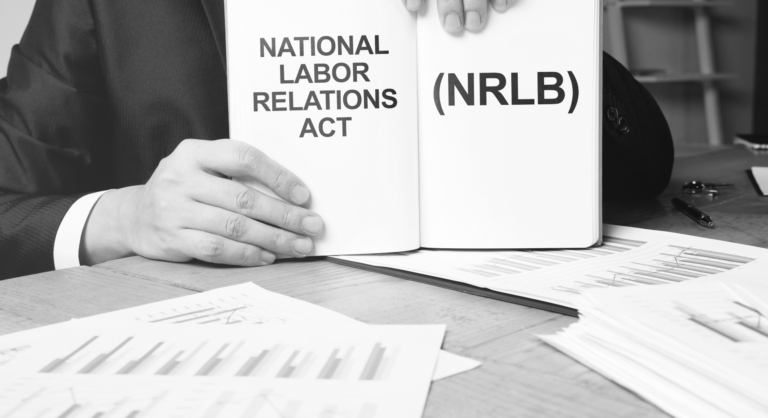NLRB Adopts New Standard for Evaluating Lawfulness of Work Rules
On August 2, 2023, the National Labor Relations Board issued a decision in Stericycle Inc., which adopts a new standard for how the NLRB will evaluate workplace policies and rules when determining if they interfere with employees’ rights to engage in concerted workplace activities under Section 7 of the National Labor Relations Act (“NLRA”). Section 7 of the NLRA guarantees employees “the right to self-organization, to form, join, or assist labor organizations, to bargain collectively through representatives of their own choosing, and to engage in other concerted activities for the purpose of collective bargaining or other mutual aid or protection,” as well as the right “to refrain from any or all such activities.” The Stericycle decision overrules the prior standard established by the Trump Administration’s NLRB in Boeing Co. (2017), which was later refined in LA Specialty Produce Co. (2019).
Under the new Stericycle standard, a workplace rule or policy complies with Section 7 of the NLRA as long as the rule or policy is narrowly tailored to “advance legitimate and substantial business interests,” as well as minimize the risks of interfering with workers’ rights to act collectively. The NLRB further held that an employer policy or rule violates the NLRA “if it has a reasonable tendency to chill employees in the exercise of their Section 7 rights.” Rules or policies that fail to meet this standard are presumptively unlawful. An employer may rebut this presumption if it can establish that the rule or policy advances a legitimate and substantial business interest, and that the employer is unable to advance that interest with a more narrowly tailored rule.
The NLRB ruled that the Boeing and LA Specialty standard permitted employers to adopt overbroad work rules that chilled employees’ exercise of their Section 7 rights. Under the prior standard, an employer was not required to narrowly tailor its work rules to promote its business interests. The NLRB also rejected Boeing’s categorical approach to work rules, under which certain types of rules were held to always be lawful regardless of how they were drafted or what interests an employer relied upon to support the rule.
Employer Takeaway
The Stericycle ruling potentially has significant implications for employers. As the NLRB is presented with challenges to workplace rules or policies under the new Stericycle standard, employers will have more guidance on how the NLRB will apply its new standard. However, the ruling itself makes clear that the NLRB likely will apply a strict standard to any challenged workplace rule or policy, and employers must be able to articulate with specificity why its rules or policies advance their legitimate and substantial business interests. Employers should review and consider their policies and rules from the perspective of their employees. Following Stericycle, the employer’s intent in maintaining a rule is not relevant. Instead, when assessing the lawfulness of a workplace rule, the NLRB will focus on whether an employee could reasonably interpret the workplace rule to have a coercive meaning. If the rule can reasonably be interpreted by an employee as coercive, then the rule will violate the employee’s Section 7 rights even if an alternative explanation for the rule is advanced by the employer. Importantly, the ruling applies to both unionized and non-unionized workplaces.
In light of the ruling in Stericycle, employers should consider reviewing their employee handbooks and workplace policies for rules or policies that may be interpreted as overbroad or an unreasonable restriction on their employees’ Section 7 rights.
Employers should contact Bowditch’s Employment & Labor practice group with any questions about the NLRB’s ruling and how it may impact their business.
Categorized: Employees, Policies
Tagged In: concerted workplace activities, employee handbooks, National Labor Relations Act, National Labor Relations Board, workplace policies






